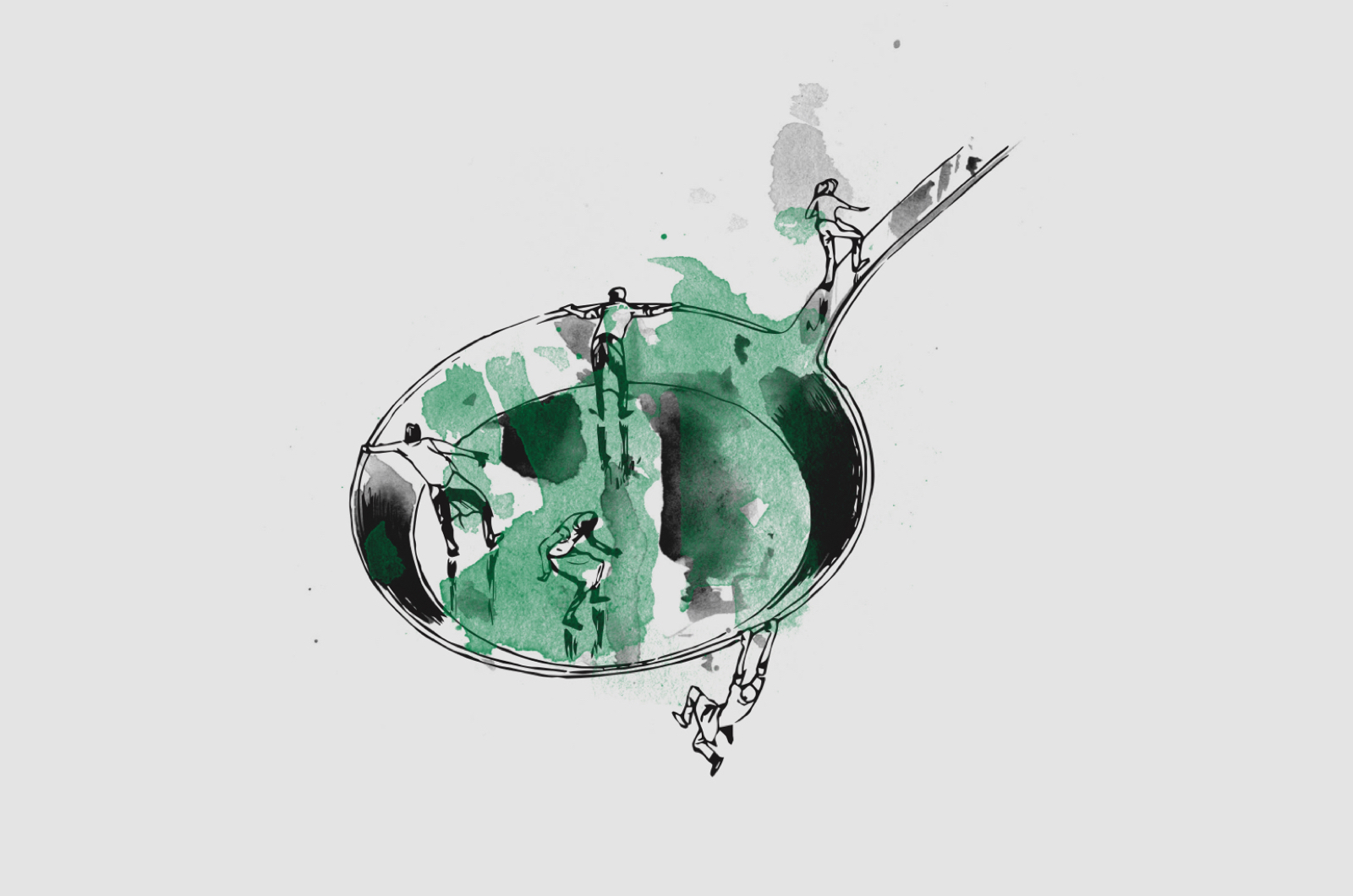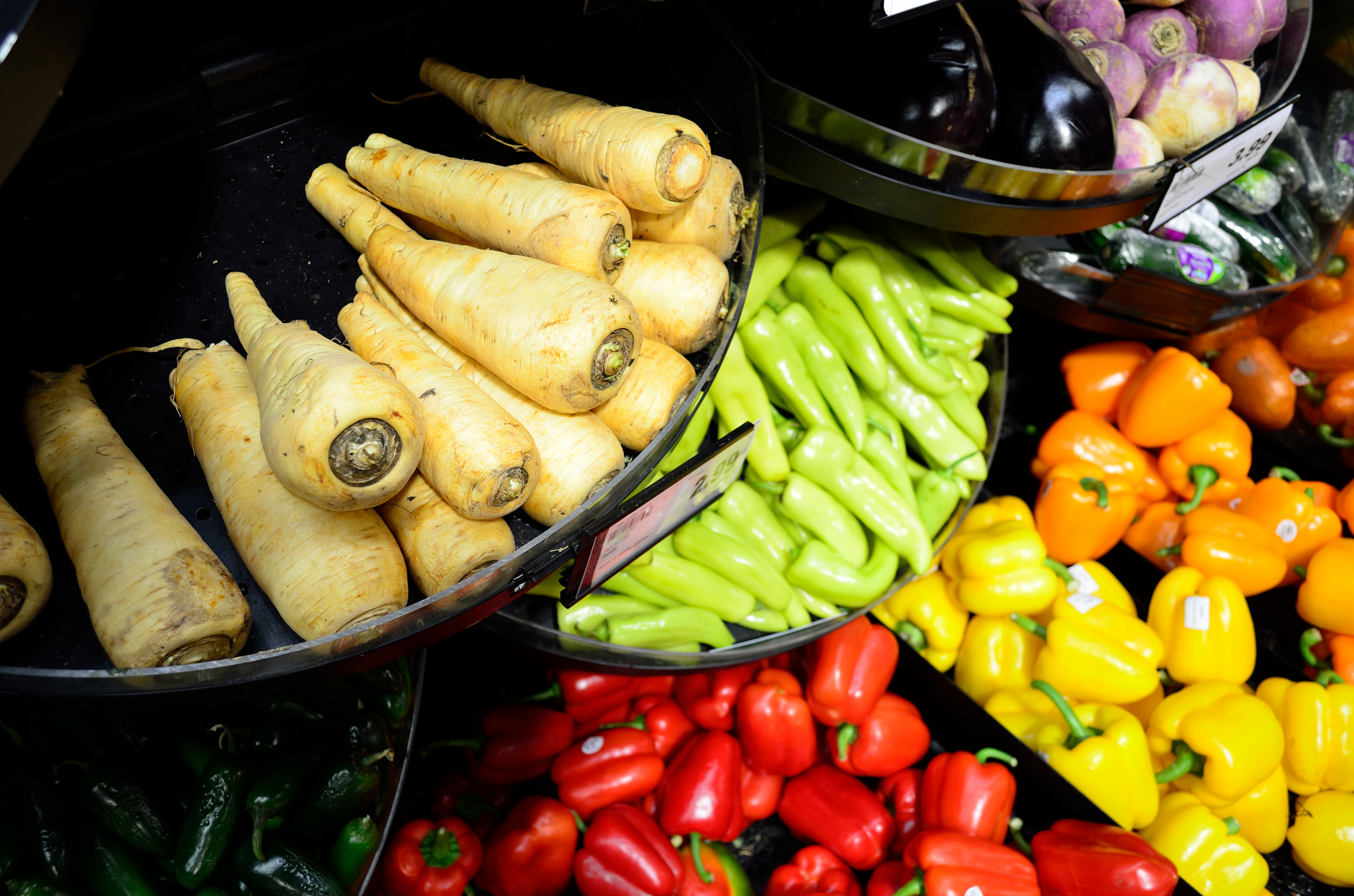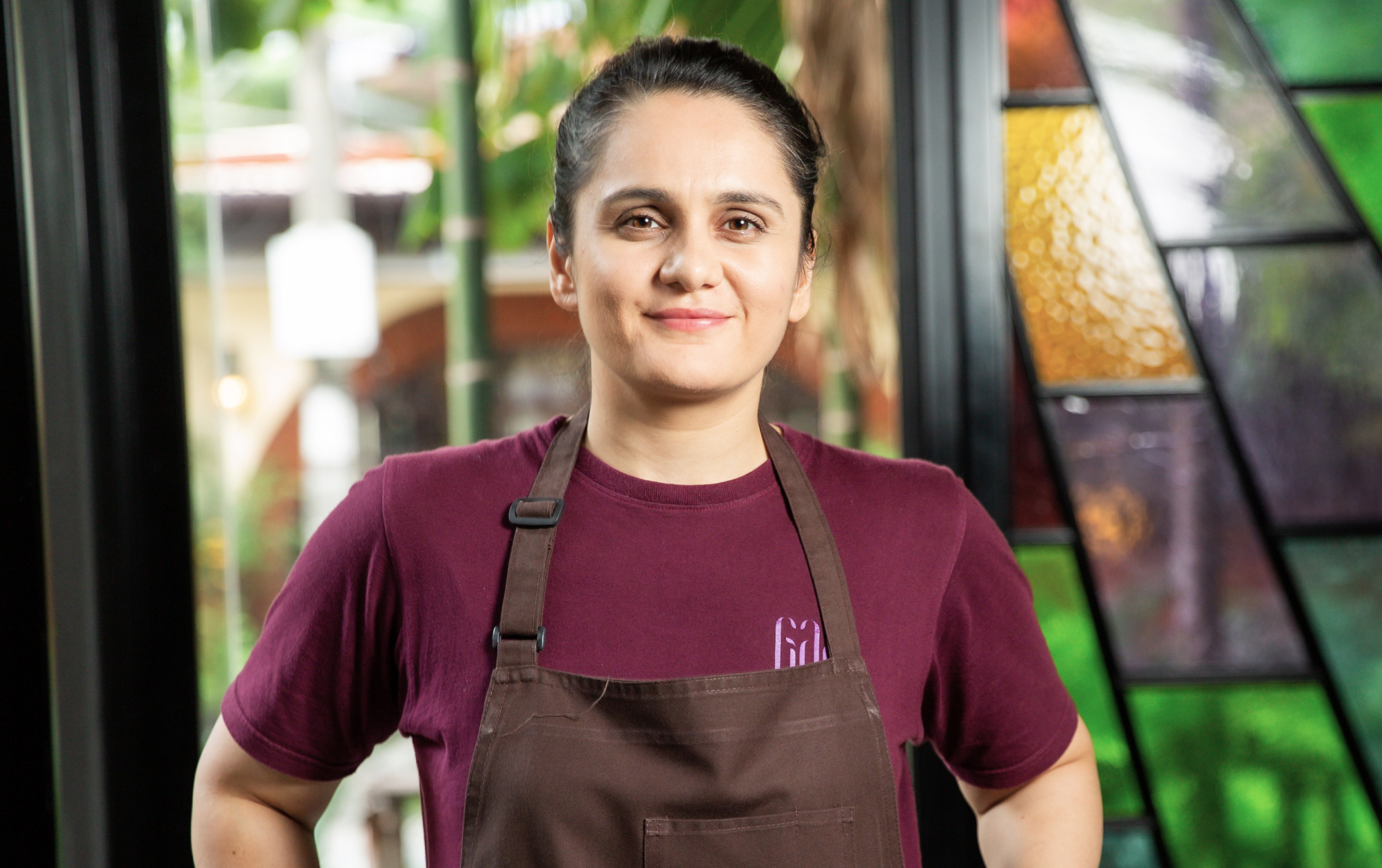Being a Chef Doesn’t Make You an Agent of Social Change
From time to time I have worked in restaurant kitchens. I have pulled split shifts in the name of research; have pin-boned trays of red mullet fillets and trimmed girolles until my fingers ached and my dreams about glimpsing the daylight that had long ago bled from the sky faded away. From this minor experience I can fully understand why so many people who work in those kitchens want to escape them. Being a chef of gastronomic ambition is hard, grinding, claustrophobic work, performed for the most part for little thanks other than the settling of a bill.
The problem is the things that so many of those chefs are now being encouraged to do with their time, when they finally do bash through the kitchen doors and escape. In recent years, a bizarre, albeit well intentioned, movement has sprung up. It portrays the high-end chef not merely as someone who knocks up a bit of dinner for rich people, but as an agent of social change; as someone who can make a cultural, political, and environmental difference.
The motivation is understandable. Obviously, coming up with delicious food can be an end in itself. It takes a certain sort of nerdy brilliance to push forward the frontiers of gastronomy day after day. I give thanks for that nerdy brilliance. The problem is the punters who fund it. For the most part, they are wretched, sneering, status-obsessed, gold-card-carrying narcissists, with scant interest in the food on the table before them. I have various mantras in life. That expensive restaurants are generally wasted on the people who can afford them is one of the more robust. A few years of feeding them nightly and you could be forgiven for wanting more from life.
Some have dealt with this by building business empires of diffusion line restaurants, product endorsements, and media appearances. Some have done it by downscaling to more modest establishments where, once again, it really is all about the food. But then, around five years ago, a third option popped up. It was inspired by two events. The first was the hoopla around the 50 Best List, which, for the first time, brought together chefs from all over the globe. Out of that annual meeting in London, as the chefs gathered for the announcement of the list, genuine international collaborations grew.
The second event was the rise of restaurants with regionalist agendas, especially in Scandinavia. After the years of Ferran Adrià’s El Bulli, Heston Blumenthal’s Fat Duck, and all their modernist acolytes, processing ingredients beyond recognition, here came a cooking style which seemed to have substance. It also coincided with the explosion in the environmentalist agenda. All around ,the talk was of climate change and humanity’s impact on the planet. Suddenly, there appeared to be restaurants that engaged with those issues, and the conviction that the solution lay in a move away from corporate and industrial and far away to artisan and small scale and close by. The fact that it was nothing of the sort, that localism is an aesthetic and cultural issue, rather than a marker of sustainability–in terms of carbon footprint what matters is how your food is grown not where–was irrelevant. A movement was born. Chefs had a cause.
Its most overt expression came in 2009, with the so-called G9 group of chefs and their grandiose, self-regarding Lima declaration. Huge names of the chef world like Michel Bras, Ferran Adrià, and Dan Barber traveled to Peru, where they put their names on a statement in which they said they dreamed of a future “in which the chef is socially engaged, conscious of and responsible for his or her contribution to a just and sustainable society.” It has continued through René Redzepi’s four MAD symposia held in Copenhagen each summer. There, alongside genuinely intriguing exchanges about foodie culture and aesthetics, there has been endless grandstanding and hyperbole about the social value of chefs. At this year’s event, urban farmer Ron Finley compared them to super heroes.
Oh, dear. Of course, the impulse to be involved in making the world a better place is a good one. Only the most self-absorbed of us has no involvement whatsoever in community action of some sort, and chefs are people, too. The impulse to act is not the issue. It’s the belief that there is something specific about cooking in luxury kitchens, in taking massively extravagant ingredients and processing them into finely honed dishes for people with big bank balances, that provides a unique skill set with a wider application.
It really doesn’t. Of course, chefs think culinary culture is important. They’ve dedicated their lives to it. What’s more, the Internet amplifies that belief. A few dozen shouty voices can sound like a genuine grassroots movement when it’s nothing of the sort. Likewise, there is a culture of exceptionalism, a belief that the current environmental challenges around issues of food security have given the chefs a unique relevance, simply because they make their living through food. The reality is that in the battle to feed the coming nine billion, a good recipe for coq au vin is of no use at all.
If ever you were looking for proof, you could do worse than examine the recent history of hospital food in Britain. After years of decline, as a result of the service being tendered out to private operators during the 1980s, a series of initiatives began to improve the food offered by the National Health Service. A succession of big name chefs was brought in to show how it should be done. The great Albert Roux had a go back in 1995. Anton Edelman was involved, as were Mark Hix, Heston Blumenthal, Stephen Terry, James Martin, and many more besides. Doubtless each did it out of a desire to help, although the associated mass media–TV shows and so on–couldn’t have hurt.
The end result has been described by campaigners as twenty years and £54 million of failure and waste. Sure, the chefs could write recipes. They could scale them up for mass catering. What they couldn’t do was get to grips with the essence of hospital catering, which is the interface between clinical care and nutrition. It’s not about the reduction of sauces or the braising of meat on mass, or lofty speeches about the importance of good food. Everybody knows good food is important to recovery. It’s about hugely complex delivery systems, interaction with nurses and doctors, and the vastly different needs of different patients. It’s about economics.
I love good cooking. I love conversations around culinary culture, and the way it roots and defines us. But to have serious conversations around that stuff, we do have to understand the limits of its application. The nutritional challenges of the 21st Century are huge. They are about supply and waste. They are about the need for sustainable intensification, the explosion of the Asian middle classes, water stressing, and meat consumption. They are the very essence of geopolitics. It’s nice that a chef skilled in knocking out twelve-course tasting menus wants to be a part of the solution. In the sense that every individual has a role to play through their consumer choices, they can be. But their status as a chef isn’t a part of it, however much they might wish otherwise.
Illustration by Kristian Eskild Jensen




